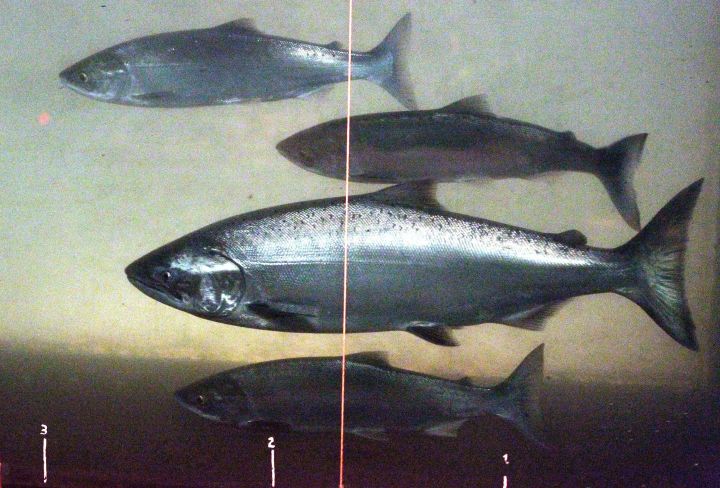CORRECTIVE: The Canadian Press distributed an erroneous report on Feb. 5 that said the Federal Court struck down a Fisheries and Oceans Canada policy on testing for a fish virus and gave the department four months to begin testing young farmed Atlantic salmon.

In fact, the Federal Court quashed the policy and gave the department four months to reconsider its decision not to test for the piscine orthoreovirus.
Updated copy is below.
The Federal Court has ruled a Department of Fisheries and Oceans Canada (DFO) policy of not screening B.C. farmed salmon for a lethal virus that has the potential to infect wild chinook salmon is unlawful.
Piscine orthoreovirus, or PRV, is highly contagious and often found in fish farms off the B.C. coast, many of which are positioned along wild salmon migration routes.
In her ruling issued Monday, Justice Cecily Strickland says the federal policy unlawfully allows young farmed Atlantic salmon to be transferred into open net pens without testing for the virus.

Get breaking National news
She has given the department four months to revise the policy and begin testing for the disease.
PRV causes fatal heart and skeletal muscle inflammation in Atlantic salmon but a 2018 study led by a Fisheries and Oceans Canada scientist found it is linked to an equally deadly type of anemia in at least one species of wild B.C. salmon.
Marine biologist Alexandra Morton is celebrating the victory after working with the Namgis First Nation and Ecojustice to convince the Fisheries Department to test farmed salmon before they are put in open net pens.
She says the problem is that PRV screening could dramatically reduce profits in the aquaculture industry.
“If the minister of fisheries follows the law of Canada and screens these fish and does not allow the infected ones to go into the water, I don’t think the fish farm industry has enough fish to keep farming in these waters, and I think that is the crux of the problem,” Morton says.
Morton and the Namgis filed a lawsuit last year against the policy.
Strickland’s judgement, released Monday, says the federal policy of not testing for the virus “perpetuates a state of willful blindness on the part of the minister with respect to the extend of PRV infection in hatcheries and fish farms.”
An emailed statement from Minister of Fisheries and Oceans Jonathan Wilkinson says the court ruling is being reviewed.
“Our government understands that a strong, science-based approach to regulating the aquaculture industry is essential and that is why we have and will continue to conduct extensive research which informs our policies and regulations,” Wilkinson says in the statement.





Comments